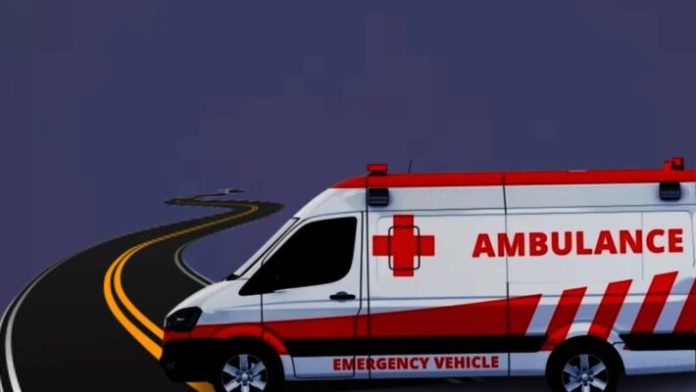Uttar Dinajpur, May 15: A heartbreaking incident recently occurred in West Bengal, where a father was forced to carry his five-month-old son’s body wrapped in a bag by bus for around 200 kilometers from Siliguri in Darjeeling district to Kaliaganj in North Dinajpur district.
The father, Asim Debshrama, was unable to pay the high ambulance fare and was left with no other choice but to carry his son’s body himself.
Asim Debshrama, a resident of Dangipara village in North Dinajpur district, had both his twin sons admitted to Raiganj Government Medical College & Hospital on May 7 due to their ailments. Unfortunately, one of his son’s condition did not improve, and he was referred to the North Bengal Medical College & Hospital (NBMCH) in Siliguri.
Also Read: Manipur Chief Minister Meets Union Home Minister Amid Kuki Disquiet in state
On May 10, Asim’s wife took their other son, who had improved, back to their ancestral home in Kaliaganj, while Asim stayed with their ailing son at the NBMCH. Late on Saturday evening, their son tragically passed away, leaving Asim devastated. He then called ambulance services for help in transporting his son’s body back to Kaliaganj.
However, the government ambulance service provider refused to transport the child’s body unless Asim paid an exorbitant amount of Rs 8,000, which he could not afford. As a result, Asim was forced to carry his son’s body himself with the help of a local agent. He wrapped his son’s body in a bag and boarded a Kaliganj-bound bus from Siliguri on Saturday night.
The journey was an excruciating one for Asim, who had to carry his son’s body on a public bus for over 200 kilometers. His pain and suffering were compounded by his son’s passing away, making it a harrowing experience.
This tragic incident highlights the urgent need for more affordable and accessible ambulance services in India, especially in rural areas where people are often forced to travel long distances to access medical care. The high cost of ambulance services, coupled with inadequate public transportation options, can make it difficult for people to access essential medical services and can lead to situations like the one Asim faced.
The government must ensure that ambulance services are available to everyone who needs them, regardless of their ability to pay. In addition, there must be a greater focus on improving public transportation options, especially in rural areas, to ensure that people can access essential services like hospitals and medical facilities.
This incident is a reminder of the challenges many families face in India and the need for urgent action to improve access to healthcare services and transportation infrastructure. It is a tragic loss for Asim and his family, and we must ensure that no one else has to face such a terrible situation in the future.
















